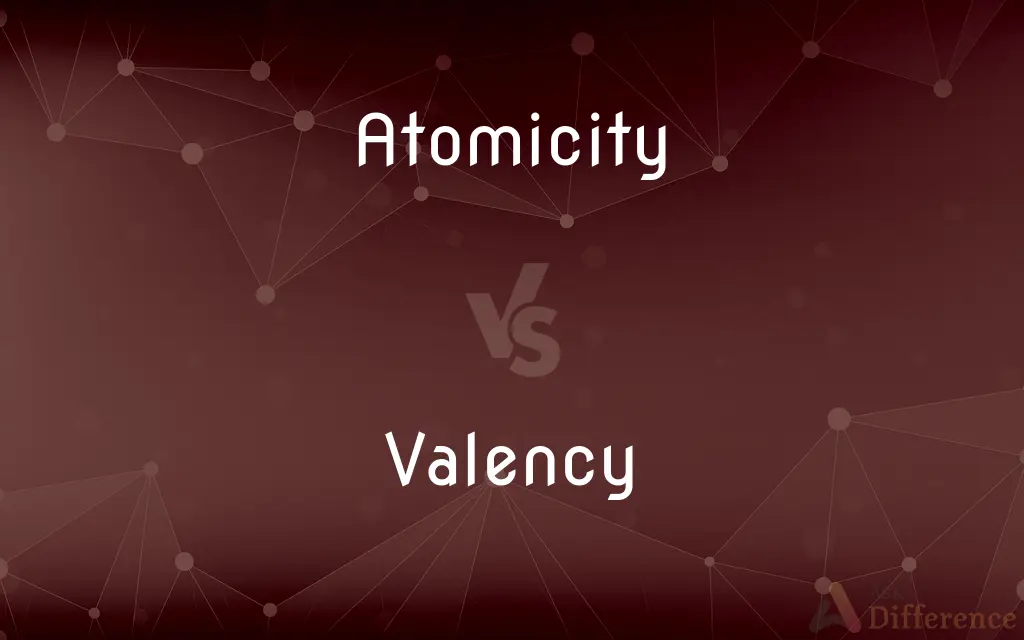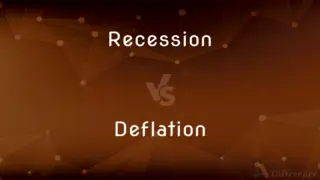Atomicity vs. Valency — What's the Difference?

Difference Between Atomicity and Valency
ADVERTISEMENT
Compare with Definitions
Atomicity
The state of being composed of atoms.
Valency
Variant of valence.
Atomicity
The number of atoms in a molecule.
Valency
The capacity of something to combine with other things, as for example the capability of a vaccine as measured by the number of pathogen serotypes that it can counteract.
Vaccine valency
Atomicity
The number of atoms in a molecule.
ADVERTISEMENT
Valency
The combining power of an element, especially as measured by the number of hydrogen atoms it can displace or combine with
Carbon always has a valency of 4
Atomicity
Valence. No longer in technical usage.
Valency
Senseid|en|chemistry}}{{alternative form of valence
Atomicity
(historical) valence
Valency
The number of edges connected to a vertex in a graph.
Atomicity
The state of a system (often a database system) in which either all stages complete or none complete.
Valency
Senseid|en|linguistics}}{{alternative form of valence
Atomicity
(uncountable) The quality or state of being atomic.
Valency
(uncountable) Importance, significance.
Atomicity
Degree of atomic attraction; equivalence; valence; also (a later use) the number of atoms in an elementary molecule. See Valence.
Valency
See Valence.
Valency
The phenomenon of forming chemical bonds
Valency
(biology) a relative capacity to unite or react or interact as with antigens or a biological substrate
Valency
(chemistry) a property of atoms or radicals; their combining power given in terms of the number of hydrogen atoms (or the equivalent)
Share Your Discovery

Previous Comparison
Recession vs. Deflation
Next Comparison
Must vs. Shall














































